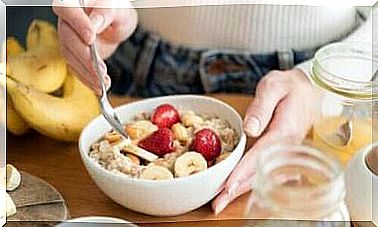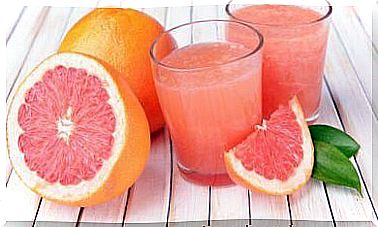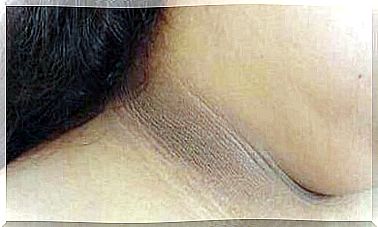What Are The Best Foods To Eat To Treat Irritable Bowel Syndrome?
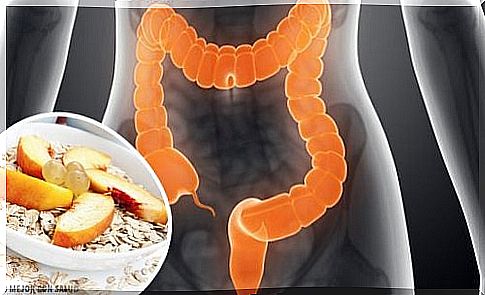
Would you like to know how to treat irritable bowel syndrome?
Irritable bowel syndrome causes changes in the intestinal tract and causes abdominal pain. It may alternate with periods of diarrhea and constipation. It is also closely linked to what you eat.
In this article we tell you what to eat if you suffer from irritable bowel syndrome. We also explain which foods you should avoid.
What is Irritable Bowel Syndrome?
Your chance of developing irritable bowel syndrome depends on where you live.
In industrialized countries, for example, it may be directly linked to stress and eating habits.
In addition, it can also be influenced by your mood. Because your moods have an effect on the secretions from the gut. When you are anxious, angry or sad, your body secretes more acids.
These acids are responsible for digesting fat, but they also have a laxative effect. That means they can cause diarrhea.
Until recently, this was the typical profile of an irritable bowel syndrome patient: a middle-aged woman who works outside the home and takes care of the children at the same time.
But today this problem affects people of all ages. Even children and teenagers suffer from this syndrome.
It can be transient. Usually, however, it is a chronic condition that comes and goes without you noticing. The basic features are abdominal distention, constipation, diarrhea and flatulence.
Irritable bowel syndrome is not easily diagnosed. That’s because his symptoms also appear in other conditions, such as indigestion.
To determine whether irritable bowel syndrome is present, the abdominal pain must occur three days a month for three months. In addition, it must be accompanied by at least one of the following symptoms:
- An aggravation of symptoms that can be seen in the shape and color of the stool.
- The appearance of symptoms after changes in the number of bowel movements.
- An improvement in symptoms after stool has left the body.
What should I do if I have irritable bowel syndrome?
Every person’s daily diet is different. But there are certain guidelines that people with irritable bowel syndrome should follow:
Eat a balanced amount of fiber
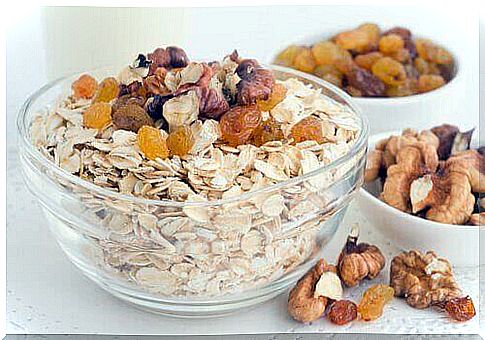
- On the one hand, you need to reduce the absorption of insoluble fiber (this is in whole grains). This is necessary to prevent it from causing an imbalance in the bowel movement.
- On the other hand, you should eat more soluble fiber. Because it supports the production of bowel movements and increases the number of intestinal contractions.
Avoid fat and sugar
Foods that are high in fat or refined sugar and fructose (a type of sugar found in fruit) can make symptoms of the syndrome worse.
watch what you drink

- Drink coffee and tea in moderation. Avoid the use of alcohol as much as possible.
- In addition, you should not forget to drink eight glasses of water a day. That way you ensure that your entire body is hydrated. This is especially important for the formation of bowel movements.
Water and herbal teas help to fight constipation.
Control your stress
It is important that you try to control your worries, nerves and anxiety. It’s easier said than done. But be sure to find a way to keep stress from overwhelming you.
Often it is a matter of attitude and how you handle situations. Try not to worry too much, don’t take your work problems home, use your time to do what you love, and get a good night’s sleep.
If you also follow a good nutrition plan, you will quickly improve irritable bowel syndrome.
Ideal Foods in Case of Irritable Bowel Syndrome
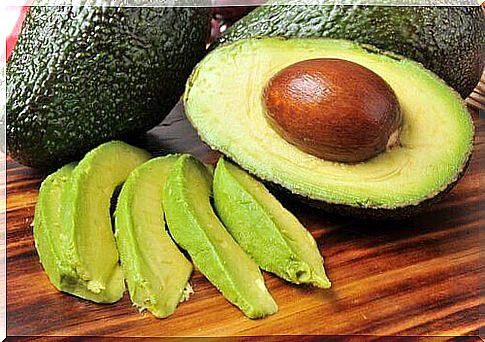
Your eating habits are very closely linked to this condition. The factors that affect you the most are the frequency and amount of food you eat.
It is recommended to eat more often but smaller amounts.
For example, if you usually eat three large meals a day, try eating six small meals now (basically split each meal in half).
Also, don’t forget to chew every bite well. It is also important that you eat slowly. Because rushing will only cause gas and indigestion. Take the time to eat. So you have to stop eating lunch or dinner in five minutes while you work!
It’s also a good idea to stick to regular eating times. Try to eat breakfast, lunch and dinner at the same time every day.
If you change these moments often, it affects the gut and causes pain.
We also recommend that you choose soft or pureed foods as they are easier to digest.
Many people think that irritable bowel syndrome is the result of the consumption of gluten. But that’s not right. Many people with celiac disease also have intestinal problems. However, not everyone should stop eating wheat.
Have yourself examined by a doctor so that you have the correct information.
Here are some foods that people with irritable bowel syndrome can eat:
Fruit
Eat the fruit without the skin, and if possible, boil or bake it.
You can eat apples, watermelon, melon and bananas.
Vegetables
Steam the vegetables so that they retain all their nutrients. In addition, they are easier to digest.
With this condition it is best to choose lentils, asparagus, onion and garlic.
Legumes and grains
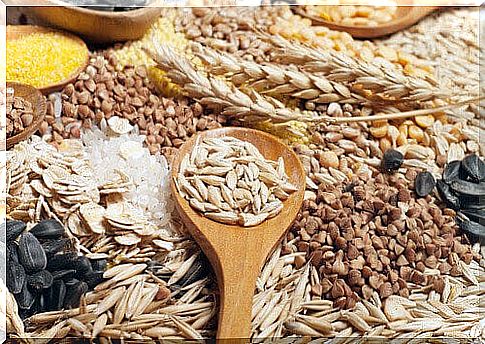
Peas, lentils and soybeans can be of great help if you have irritable bowel syndrome.
As for grains, we recommend wheat, barley and rye.
Dairy products
If you are lactose intolerant, you can opt for plant-based milk. Otherwise, dairy products are safe as long as they are fat-free.
